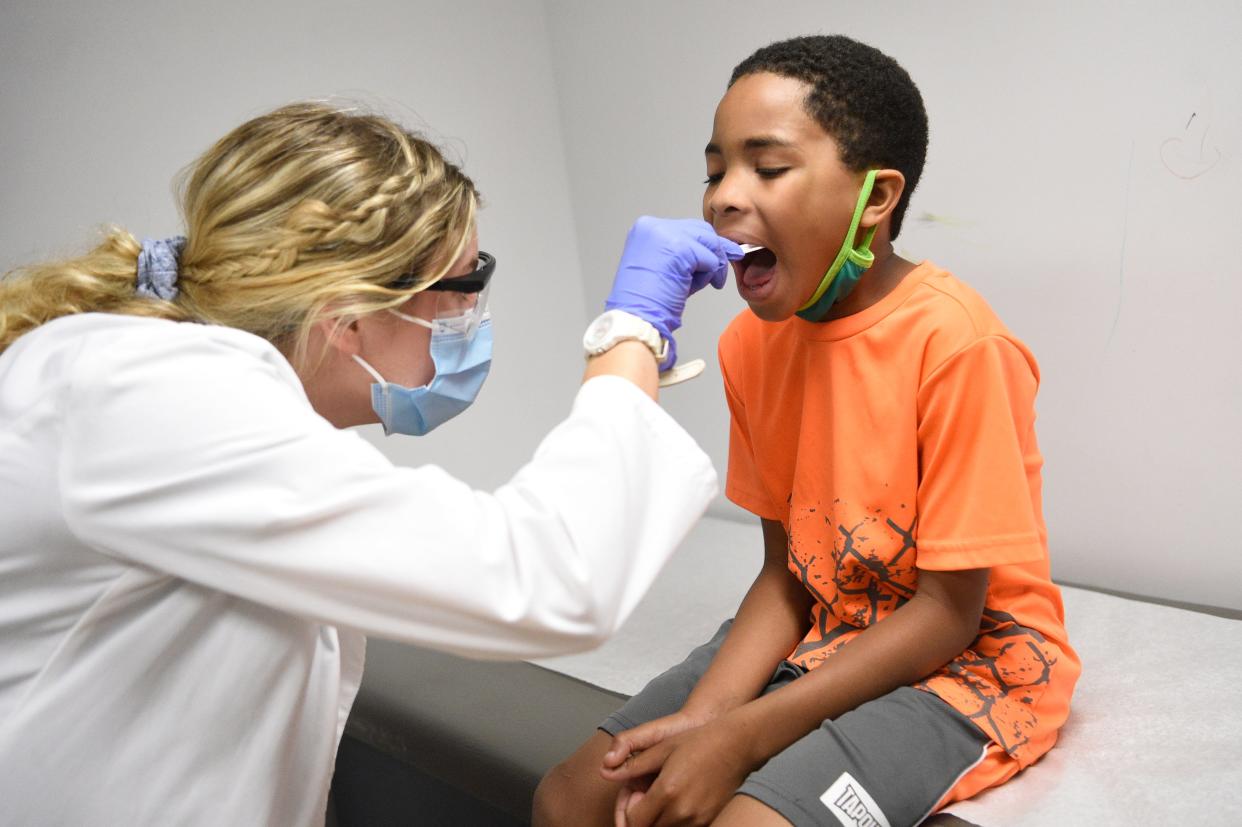Is invasive strep cause for concern? Here's what happens when strep gets past our defenses

Adam’s Journal
We’ve all heard of strep throat. But now there's something called “invasive strep,” which I read is on the rise. What is it, and should we be worried?
Dr. James Prescribes
“Invasive strep” is short for invasive Group A streptococcus. Strep A causes many different infections, including strep throat. When these bacteria enter the bloodstream and go deeper into the body, it’s considered invasive. The condition can cause severe illness and, in rare cases, death. It requires immediate medical attention.
Strep A infections are highly contagious and are usually easily detected by a throat swab or blood test. Healthcare providers treat them with antibiotics, and most people recover quickly.
Invasive strep occurs when the bacteria get past our usual defenses. This can happen when a strep A infection is untreated or if someone has breaks in their skin that allow the bacteria to get into tissue. Children with active or recent viral infections with influenza or varicella, the virus that causes chickenpox, are also at higher risk of developing invasive strep.
The Centers for Disease Control and Prevention first reported an increase in pediatric invasive strep infections last December. Cases have remained elevated compared to previous years, and some areas of the U.S. have also seen an increase in invasive strep in adults, especially those aged 65 years and older.
The symptoms of invasive strep vary depending on which part of the body is affected. Common signs include fever, chills, rapid heartbeat, low blood pressure, difficulty breathing, changes in alertness, and a rash or skin infection. Many people associate invasive strep with necrotizing fasciitis, often called “flesh-eating disease.” While this is one condition caused by strep A infection, it’s extremely rare, representing a fraction of cases.
Researchers don’t know why we’re seeing an uptick in cases of invasive strep. Some experts believe it may be related to the rollback of COVID-19 mitigation measures and the swell of respiratory viruses like influenza and RSV.
Although infection rates have increased, invasive strep remains rare. Practice good handwashing, avoid contact with people who are ill, and ensure your household is current on influenza and varicella vaccinations. If you have symptoms of strep, see your healthcare provider. A standard course of antibiotics should restore your health in short order.
James, a physician-scientist, is vice president of clinical affairs at the Oklahoma Medical Research Foundation. Cohen is a marathoner and OMRF’s senior vice president and general counsel. Submit your health questions to contact@omrf.org.
This article originally appeared on Oklahoman: While rare, cases of invasive strep have been elevated since last year

